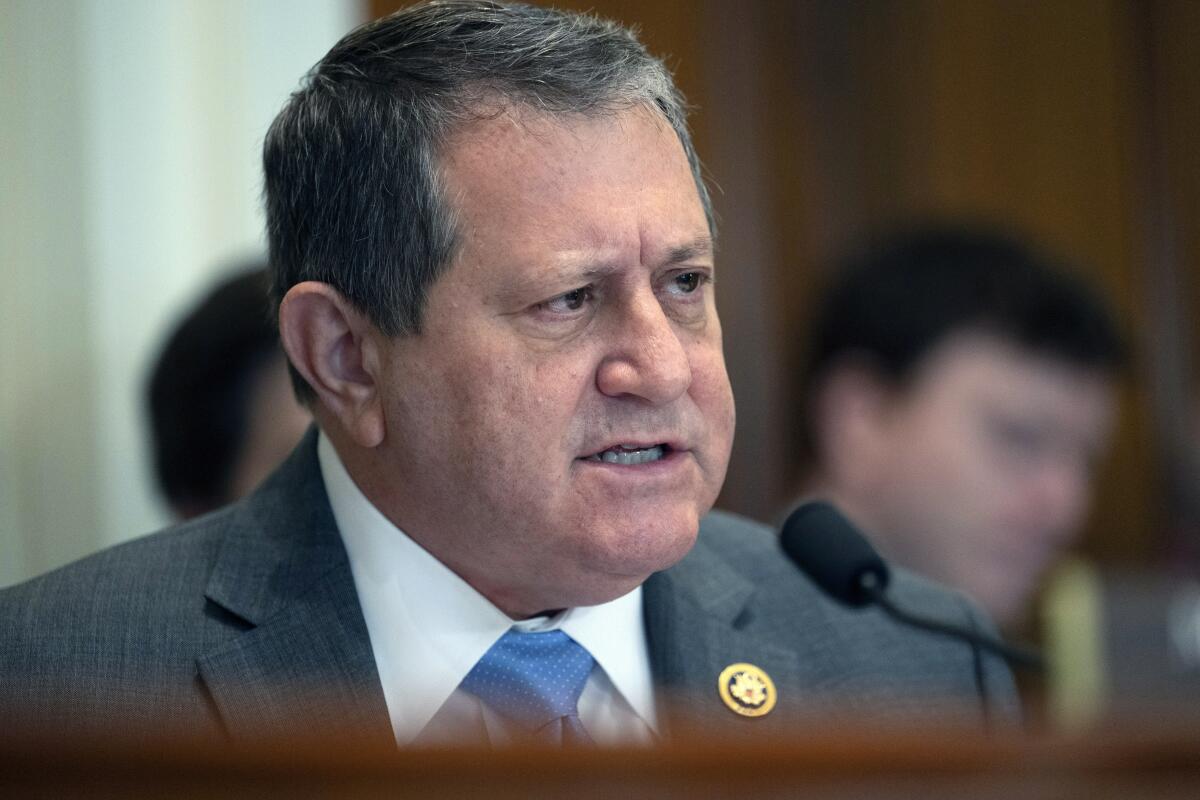House Democrat proposes constitutional amendment to reverse justices’ presidential immunity ruling

A leading House Democrat is preparing a constitutional amendment in response to the Supreme Court’s landmark immunity ruling, seeking to reverse the decision “and ensure that no president is above the law.”
Rep. Joseph Morelle of New York, the top Democrat on the House Administration Committee, sent a letter to colleagues informing them of his intent to file a resolution to start what’s traditionally a cumbersome amendment process.
“This amendment will do what SCOTUS failed to do — prioritize our democracy,” Morelle said in a statement to the Associated Press.
Morelle said that former President Trump “must be held accountable for his decisions,” adding: “I urge my colleagues to support my amendment and stand with me on the front line to protect our democracy.”
It’s the most significant legislative response yet to the immunity decision earlier this week from the court’s conservative majority, which stunned Washington and drew a sharp dissent from the court’s liberal justices, who warned that the ruling imperils democracy, particularly as Trump seeks to return to the White House.
Still, the effort stands almost no chance of succeeding in this Congress.
Writing for the court’s majority, Chief Justice John G. Roberts Jr. said that presidents have “absolute immunity” from criminal prosecution for actions taken within their official duties — a decision that throws into doubt the Justice Department’s cases against Trump, including for his efforts to overturn the 2020 election.
The nation’s high court refuses to decide quickly on Trump’s claim that he cannot be prosecuted for the Jan. 6 attack on the U.S. Capitol.
Trump and his allies celebrated the ruling by the high court, which includes three justices appointed by the Republican former president. His legal team immediately moved to delay next week’s scheduled sentencing for his felony conviction in an unrelated hush money case in New York state court. The judge agreed to postpone the sentencing until fall.
The outcome all but ensures the federal cases against Trump will not be resolved before the November election, when he faces a likely rematch with President Biden.
The constitutional amendment process would likely take years, and might never come to fruition — but supporters believe it is the most surefire way to enshrine the norm that presidents can face consequences for their actions.
“This amendment will guarantee that no public officer of the United States — including the president — is able to evade the accountability that any other American would face for violating our laws,” Morelle wrote in a letter to colleagues this week.
He quoted Justice Sonya Sotomayor, who led the dissent, and Justice Ketanji Brown Jackson, who joined in dissenting along with their fellow liberal, Justice Elena Kagan. Morelle then summed up in his own words: “Presidents are citizens, not tyrants.”
Another Democrat, Rep. Alexandria Ocasio-Cortez of New York, said Monday that she planned to file articles of impeachment against the justices behind the ruling, which she said represents “an assault on American democracy.”
Even before his big Supreme Court win, Trump promised to be ‘dictator for one day.’ Will the ruling embolden him further?
“It is up to Congress to defend our nation from this authoritarian capture,” Ocasio-Cortez said on social media. “I intend on filing articles of impeachment upon our return.”
The House and Senate are on recess this week for the Fourth of July and will be back in session on Monday.
A constitutional amendment would require a two-thirds vote in both the House and Senate — highly unlikely at this time of divided government — followed by ratification by three-fourths, or 38, of the 50 states.
There have been 27 amendments to the U.S. Constitution. The most recent, adopted in 1992 after more than 200 years, is the Congressional Compensation Act, which prevents any changes to House or Senate salaries from going into effect before the next election.
Mascaro writes for the Associated Press.
A rundown of the 10 most significant Supreme Court rulings of the 2024 term.
More to Read
Start your day right
Sign up for Essential California for news, features and recommendations from the L.A. Times and beyond in your inbox six days a week.
You may occasionally receive promotional content from the Los Angeles Times.









